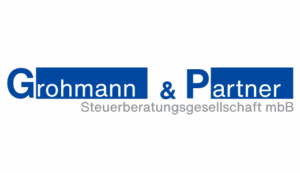
Workflow automation for smart processes
Systematically automate complex processes: With intelligent workflow automation, companies create end-to-end, automated process chains — from the first data entry to the final decision.
Automated workflows increase process efficiency — end-to-end, rule-based and cross-system.
Fragmented processes, manual steps and isolated systems lead to long throughput times and a high susceptibility to errors. At the same time, requirements are increasing: Processes must be transparent, scalable and auditable — in the back office as well as in customer-related areas.
Workflow automation forms the basis for end-to-end process automation. With BPMN workflows, standardised interfaces, RPA (Robotic Process Automation) and AI, processes can be efficiently automated and optimised. Hyperautomation enhances this with intelligent, data-based decisions.
Whether onboarding, contract management, invoice processing or approval routes: Automated workflows connect systems, data and decisions in a digital process architecture.
Technology that automates — for scalable, intelligent workflows
- BPMN workflows for structured process automation
- Low-code and RPA for rapid implementation of digital processes
- API-first and event-driven integration across all systems
- AI-supported decisions for greater depth of automation
- Tool-Support: Camunda, Power Platform, UiPath, AppWorks
- Standardised interfaces to SAP, DMS, CRM & Co.
- Monitoring and control of productive workflows
- Implementation on scalable cloud and hybrid platforms





























What are the specific benefits?
Automated processes, greater process efficiency and modular process structures.
How we support you.
We support companies in the introduction of scalable workflow automation — from analysing existing processes to implementing end-to-end digital process structures. Whether manual individual steps or isolated tools: Together, we will create a future-proof basis for automated workflows.
Our experts consistently align all solutions with your business logic — with BPMN models, API-first principles and standardised components. The result: automation solutions that can be integrated, reduce complexity and ensure stable operation.
Whether a specialised process or IT workflow — we identify which processes are suitable for workflow automation. We use process mining, interviews and data analyses to identify bottlenecks, manual interfaces and redundancies.
The result is a prioritised automation roadmap with quick wins and potential for hyperautomation — well-founded, scalable and tailored to your business goals.
BPMN workflows (Business Process Model and Notation) form the structured basis for digital process automation. We model clear processes, define responsibilities, rules and escalations - standardised, reusable and understandable for IT and business departments.
This creates a resilient basis for the productive use of workflow automation, which can be gradually expanded and supplemented with RPA and AI components.
Efficient workflow automation requires seamless integration. We design interface architectures based on API-first, event-driven design and standardised communication models.
This stabilises data flows, avoids redundant processes and creates the basis for automated end-to-end processes — regardless of the specialist application used.
We realise automated workflows with low-code, RPA or native engines, depending on the platform, complexity and target system. We focus on clear deployments, versioning and a clean handover to operations.
This results in production-ready automation solutions with high availability, comprehensible rules and standardised interfaces, flexibly expandable for future requirements.
After the go-live, we support your workflows with targeted monitoring, alerting and performance indicators. Bottlenecks, manual interventions or rule conflicts become visible and addressable.
This creates transparency across your entire process landscape — as a basis for iterative improvements, governance and data-driven further development in terms of hyperautomation.
Your IT Transformation starts here.
Let’s talk about your goals.
Growing requirements, diverse tools and fragmented processes require a well thought-out architecture. With workflow automation, you can create modular processes, clear interfaces and a stable basis for scalable process platforms. Domain-driven design, API-first and RPA integration enable solutions that can be automated and integrated in the long term.
Dive deeper into the topic.
Explore further resources.
Customer Story: Pecovasa Renfe Mercancías
We have implemented an automated billing platform for Pecovasa Renfe Mercancías – for end-to-end workflows.
Efficiency and scalability through automated processes
Why robotic process automation only works if automation is thought through strategically.
Digital process automation without programming
How low-code platforms accelerate digital workflows – and enable automation in the specialist area.
FAQ
Do you have questions about workflow automation & hyperautomation?
In our FAQ you will find concise answers to key topics relating to digital process automation, RPA and scalable end-to-end processes.
Still have questions?
High manual effort, media disruptions and growing process complexity all slow down efficiency. Workflow automation creates end-to-end processes that are standardised, digitalised and controllable based on rules. This reduces error rates, speeds up throughput times and enables scalable end-to-end processes — a key foundation for future-proof process architectures.
Workflow automation focuses on clearly structured, rule-based processes, e.g. authorisations or data transfers. Hyperautomation goes beyond this: it links workflows with RPA, AI and process mining to intelligently automate dynamic decisions, unstructured data and complex process chains.
RPA enables the execution of repetitive tasks, such as reading, transferring or validating data. Integrated into workflow automation, software bots perform these tasks across all systems without the need for extensive system adjustments. This creates automated processes that run reliably and around the clock — scalable and auditable.
A typical use case is digital contract management: All steps can be mapped as an automated workflow, from initiating the approval process and responsibilities to filing in the DMS — including RPA-supported data extraction and rule-based approvals. These scenarios save time, avoid errors and increase transparency throughout the entire process.
Technology alone is not enough. Successful workflow automation requires clearly defined processes, systems that can be integrated (e.g. via API-first), a harmonised governance model and measurable targets. It is crucial to start with scalable pilot processes, and to systematically expand automation across use cases and business areas.






